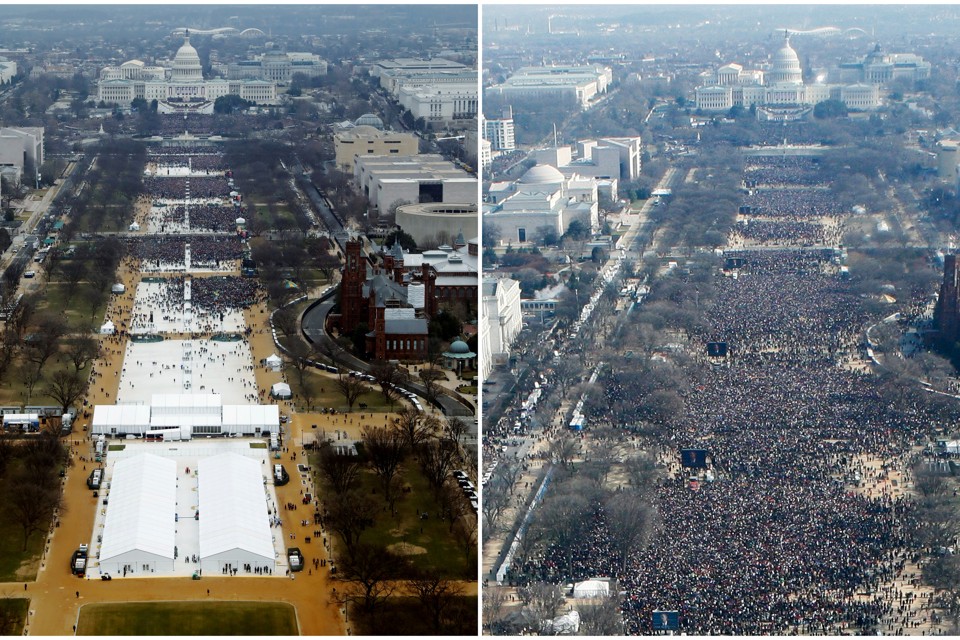Andrew Higgins
"Russian authorities whose legitimacy rests in large part on the celebration of martial triumphs, most notably over Nazi Germany in World War II but also over rebels in Syria."So let's talk about legitimacy. In this context legitimacy is the agreed right to rule; the acceptance by the majority of the population of the ruler's right to govern and its' tacit agreement to obey and be governed by laws made by this ruler (which is to say his/her government). This applies no matter what political system is under consideration. Since the collapse of the Soviet Union Russia has devolved into a pseudo-democratic autocracy, similar to tsarism, but with Tsar Putin draped in the clothes of democracy. Legitimacy can only be dictated by an autocrat up to a point, as revealed by the collapse of tsarism last century; even then it needs a spark of circumstance to catalyse the process. Still, it is easier to manufacture legitimacy under Russian pseudo-democracy, than the versions practiced elsewhere.
In the above quote, Higgins points his finger at Russia, but this legitimacy thing is not restricted to the rivals of the USA. By the above definition there has not been a legitimately elected president for a majority of the past 4 or 5 elections, least of all Trump. Except for Obama, no president in the last 20-30 years has earned a majority of the popular vote, so Trump has no legitimacy to govern and yet is allowed to continue.
So now let's talk about foundation myths; better yet, myths in general, and how they are used by political elites to maintain the status quo with them in control. Indeed myths, which take advantage of general manufactured ignorance in society and innate intellectual laziness, are one of the main tools at the disposal of governments, whereby they control the population.
Nationalism which culminated in the implosion of Europe through the industrialised World War of 1914-1945 is only harmful in its extreme form, as is the case with most things. A little bit of national pride and patriotism is not necessarily a bad thing. People have a sense of belonging to a group and are lifted by feelings of self-worth. Every brand of nationalism begins with a foundation myth. The Russian brand begins with what Higgins calls 'the celebration of martial triumphs' achieved in a sepia-tinged glorious mythical past. Most if not all foundation myths are martial in nature, so the US brand is couched in the War of Independence; the Australian brand in the Gallipoli Fiasco; the British in the colonial larceny of the 19th century etcetera. So these brands are militaristic in nature and seek to differentiate nations on the basis of the size of their armies and armaments, thereby creating a hierarchy or world order of nations. You may have noticed that it's all starting to sound rather sinister.
Meanwhile the great Australian progressive journalist Van Badham has weighed into the fray with a piece in 'The Guardian' glorifying the past of the Australian Labor Party:
"Don’t believe me? Consider what’s socially possible for the one-in-seven American households living in food poverty and compare it to the limitlessness of opportunity enjoyed by Donald Trump’s cabinet of billionaires. These uneven results are fomenting conditions in which the power of the billionaire class depends on the distractions of nationalism, racism and other forms of scapegoating to protect itself. With the election of Donald Trump, the tenets threaten to become structural."If you want sinister this is sinister bordering cynical conspiracy theory stuff laced with left-wing cliches. Higgins appears more balanced superficially. True balance must lie somewhere in between. Somewhere between 'a political ideology of some use in milder forms but harmfully self-destructive in concentrated form' and 'a distraction...a scapegoating to protect itself (the billionaire class)'
How do you create these myths? having created them how do you use them to create a reality in which you remain at the apex of the socio-political hierarchy? Historians explain societies in terms of estates. This concept dates back to the dark ages and basically means a tier in the social hierarchy. So: the first or highest tier is of course the Monarch; the nobles and clergy are probably of equal rank below that of the monarch; the third estate is usually recognised as the group composed of the peasants and the bourgeoisie; with reference to 18th century France, a fourth estate is usually tacked onto the end of this conceptual framework, The Media. This term refers to the means of conveying information to the populace. Manipulation of this fourth estate can create myths
"They (the Russian branch of the Jehovah's Witnesses) can be used to send a message.”
That message, it would seem, is that everyone needs to get with the Putin program — or risk being branded as an extremist for displaying indifference, never mind hostility, to the Kremlin’s drive to make Russia a great power again."



